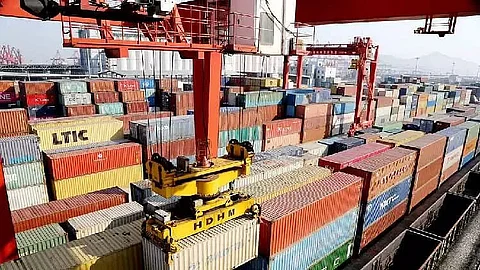
- Home
- Live Blog
- Breaking News
- Top Headlines
- Cities
- NE News
- Sentinel Media
- Sports
- Education
- Jobs

NEW DELHI: After almost one year since the bitter Galwan valley clash between India and China took place, New Delhi has gradually started clearing the pending investment proposals from Beijing. While the small ticket foreign direct investment (FDI) proposals are being cleared in the initial stage, sources said that India is not opposed to Chinese FDI per se.
"India has never banned Chinese FDI. The only change in the regulatory structure is the requirement of an approval from the authorities for Chinese companies to invest. This is not a very retrograde step and yes we will apply caution and I don't see why that should lead to such concerns," a policymaker on condition of anonymity said.
It is also learnt that India will study the proposals one by one and in cases which pose no threat to security will be approved. "The government has always maintained that there is a need for healthy FDI inflow for economic growth and job opportunities," he said.
Since April 2020, India has received over 120 FDI proposals of about $1.63 billion from China.
According to India Briefing, most of these investments are for brownfield projects.
It also noted that despite the hype, though China remains India's largest trading partner, the actual proportion of FDI directed into New Delhi constituted only $2.43 billion – 0.51 per cent of total inflows. Singapore, Mauritius, the Netherlands, Japan, US, US comprise the list of countries from where India has received the largest share of FDI.
However, India also needs to be watchful as China has been rapidly increasing its investments in Indian companies, including startups.
"There are too many variables involved in such decisions. I don't think these can be handled in a hurry. The authorities will have to take appropriate decisions keeping the best interest of the country in mind," Deepak Sood, secretary general, Assocham told India Narrative.
Last year, the government revised its FDI policy to bar any "opportunistic" takeover or acquisition in domestic companies by its neighbouring countries even before the Galwan Valley incident. The move was aimed at protecting domestic companies from hostile takeovers amid dropping valuations due to the Covid-19 pandemic.
Reports suggested that several China-backed funds including Industrial and Commercial Bank of China (ICBC) and China Investment Corporation (CIC) were aggressively looking for investment opportunities in Indian companies in various sectors as their valuations had taken a hit with the spread of the pandemic.
In India, FDI is either allowed through the automatic route – where companies do not require any government approval or through the government route – for which companies have to seek government nod.
"A non-resident entity can invest in India, subject to the FDI Policy except in those sectors/activities which are prohibited. However, an entity of a country, which shares land border with India or where the beneficial owner of an investment into India is situated in or is a citizen of any such country, can invest only under the government route," a press note by the Department for Promotion of Industry and Internal Trade (DPIIT) said.
"The resilience of China-India economic and trade relationship should not be completely dismissed. It is true that the Modi government has pushed for a self-reliance strategy to support domestic industrial development, but that doesn't necessarily mean decoupling from Chinese supplies that are integrated into the local market," the Chinese state backed Global Times said in an article in January. (IANS)
Also Watch: